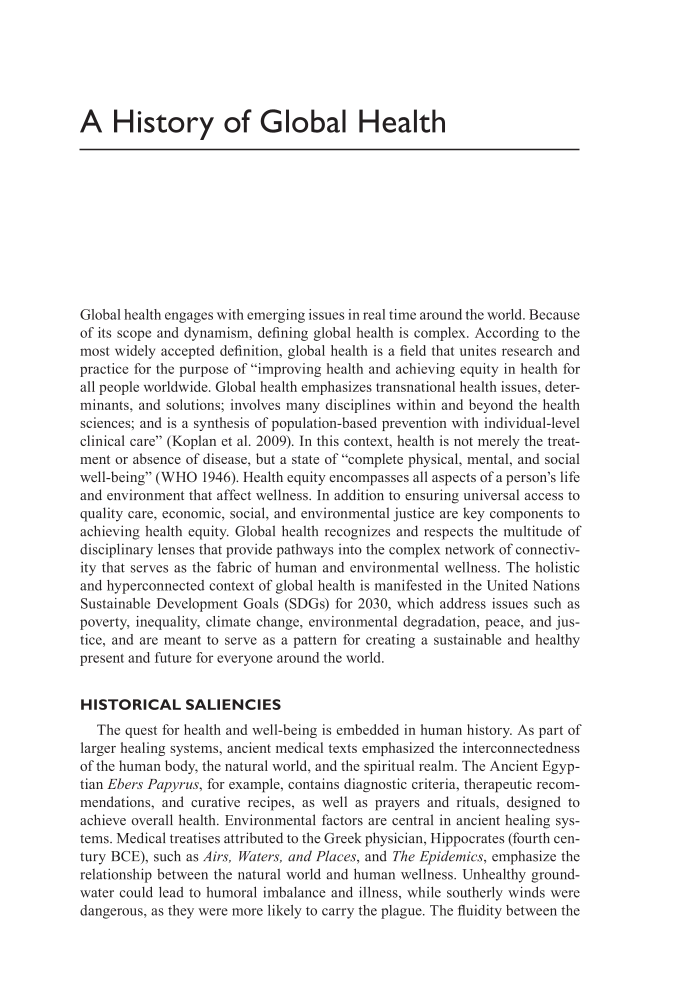A History of Global Health Global health engages with emerging issues in real time around the world. Because of its scope and dynamism, defining global health is complex. According to the most widely accepted definition, global health is a field that unites research and practice for the purpose of “improving health and achieving equity in health for all people worldwide. Global health emphasizes transnational health issues, deter- minants, and solutions involves many disciplines within and beyond the health sciences and is a synthesis of population-based prevention with individual-level clinical care” (Koplan et al. 2009). In this context, health is not merely the treat- ment or absence of disease, but a state of “complete physical, mental, and social well-being” (WHO 1946). Health equity encompasses all aspects of a person’s life and environment that affect wellness. In addition to ensuring universal access to quality care, economic, social, and environmental justice are key components to achieving health equity. Global health recognizes and respects the multitude of disciplinary lenses that provide pathways into the complex network of connectiv- ity that serves as the fabric of human and environmental wellness. The holistic and hyperconnected context of global health is manifested in the United Nations Sustainable Development Goals (SDGs) for 2030, which address issues such as poverty, inequality, climate change, environmental degradation, peace, and jus- tice, and are meant to serve as a pattern for creating a sustainable and healthy present and future for everyone around the world. HISTORICAL SALIENCIES The quest for health and well-being is embedded in human history. As part of larger healing systems, ancient medical texts emphasized the interconnectedness of the human body, the natural world, and the spiritual realm. The Ancient Egyp- tian Ebers Papyrus, for example, contains diagnostic criteria, therapeutic recom- mendations, and curative recipes, as well as prayers and rituals, designed to achieve overall health. Environmental factors are central in ancient healing sys- tems. Medical treatises attributed to the Greek physician, Hippocrates (fourth cen- tury BCE), such as Airs, Waters, and Places, and The Epidemics, emphasize the relationship between the natural world and human wellness. Unhealthy ground- water could lead to humoral imbalance and illness, while southerly winds were dangerous, as they were more likely to carry the plague. The fluidity between the
Document Details My Account Print multiple pages
Print
You have printed 0 times in the last 24 hours.
Your print count will reset on at .
You may print 0 more time(s) before then.
You may print a maximum of 0 pages at a time.















































































































































































































































































































































































































































































































































































































































































































































































































































































































































































































































































































